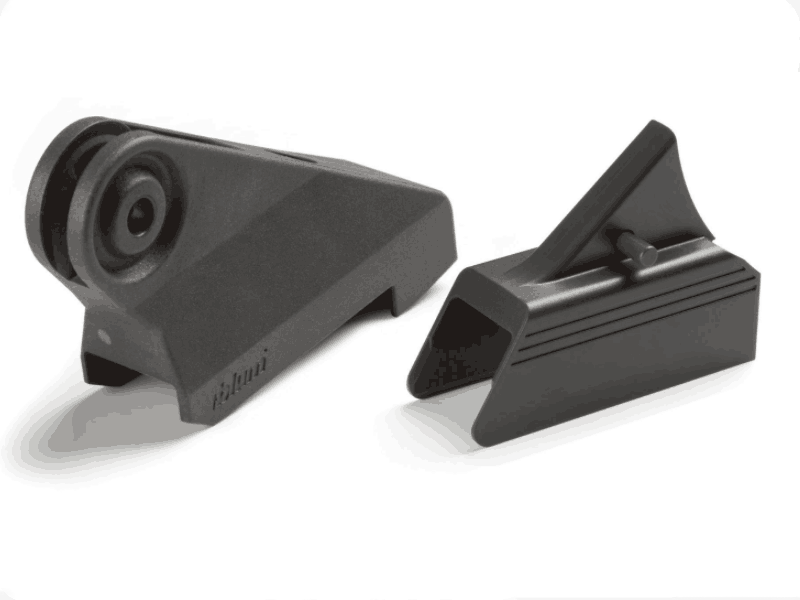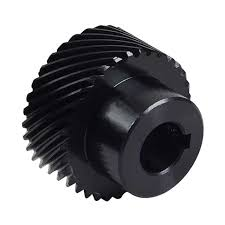Plastic injection molding provides great versatility to produce plastic products
Engineered Plastic Components, Inc. is a company that specializes in plastic injection molding [1]. The company has experienced project engineers who can help with CAD design, mold flow analysis, mold design and build, and prototype. They have plants in the Midwest of the US and one in Reynosa, Mexico. They also collaborated with the University of Iowa to produce a mold for face shields in response to COVID-19. They encourage customers to order the Hope Face Shields by emailing or calling [1].
Springboard is another injection molding manufacturer that offers consultations for manufacturability to ensure accurate manufacturing of design specifications into end products [2]. They also offer R&D manufacturing services for customers with new part or product designs. Springboard can adjust their molding and tooling to accommodate design changes and work with quality tool and mold makers to create precise injection molded parts. They provide support for plastic product designs and can advise designers on changes for accurate manufacturing. Springboard offers consultation for injection molded plastic parts for various industries, including medical and aerospace

The engineering plastic molders use several popular techniques to produce plastic products.
Basically, it uses plastic injection molding as it is an extremely versatile method of producing plastic parts. Further, it has multiple advantages over other methods of plastic molding.
It is highly efficient as well as reliable in comparison to other methods of plastic molding. Moreover, it is an ideal technique for the production of a huge range of complex plastic components. It also can benefit OEMs across several different industries.
Let’s talk about the basic history of plastic molding as well as discuss the popular types of plastic molding in 2021. You will also learn how can you mold plastic at home?
History of plastic molding
If we peep in history, we will examine that plastic molding began in the late 1800s. Basically, it was introduced to fill the need for plastic billiard balls.
John Wesley Hyatt introduced a new way to create billiard balls by injecting celluloid inside a mold, in 1868. Almost four years later, Hyatt and his brother invented as well as patented the machine to automate this process.
Actually, it was the very first plastic injection molding machine. It made use of a basic plunger in order to inject plastic into a mold via a heated cylinder. So, this is where the never-ending history begins. The engineering plastic molders prefer to use it as it is extremely consistent.
What is the plastic molding process?
The plastic molding process is highly affordable and can create high-quality and durable plastic components. These components can actually withstand any environmental conditions.
Let’s check out the plastic molding process. In this process, manufacturers create plastic components when;
- molding plastics
- liquid
- or powder polymers
are placed into a hollow mold so the polymer can take its shape. These polymers are of many kinds such as polyethylene or polypropylene and many more.
It is the technique of shaping plastic by using a mold or a rigid frame. This process helps to create objects of all sizes and shapes with a wide range of design flexibility.
Further, this technique is helpful for both simple and highly complex designs. By using this process engineering plastic molders can create many car parts, containers, signs, and many other high-volume items.
What are the types of plastic molding?
Now, we will discuss the most popular types of plastic molding. These are:
- Injection molding
- Blow molding
- Extrusion molding
- Rotational molding
- Compression molding
- And thermoforming, etc.
Injection molding:
In this technique, molders create plastic parts by injecting the molten plastic material at very high pressure into a metal shape called mold. Then manufacturers cool down the mold and open it to get the final plastic part.
Its popular uses:
Basically, it is ideally used for creating high-volume custom plastic components. It provides a great facility to use several types of plastic resins. The most common products are:
- electrical switches
- auto bumpers or dashboards
- medical devices and so on.
Blow molding:
In fact, it is just like injection molding except that engineering plastic molders pour hot liquid plastic out of a barrel vertically in a molten tube. In the next step, the mold closes on it and forces it outward in order to conform to the inside shape of the mold.
When it is cooled down, the hollow part is actually formed.
Its popular uses:
Actually, it is an ideal technique for generating hollow parts. Further, it is a high-speed molding technique as it can produce around 1440 pieces with an average of 12 hours per day. Moreover, it is also extremely beneficial for making hundreds of thousands of plastic bottles.
Its most popular products are:
- tubes
- plastic containers
- plastic bottles with several different styles and shapes.
Extrusion molding:
It is also same as the injection molding. But a sleek difference is that engineering plastic molders use it to get products of long continuous shapes. Further, the main difference is that this process uses a “die” instead of a “mold.”
So, the shape of the die determines the final shape of your products instead of a mold.
Its popular uses:
The parts that molder create by using extrusion molding generally have a fixed cross-sectional profile. Its most popular products are:
- hoses
- straws
- PVC piping
- plastic gutters and so on.
Rotational molding:
It is also popular as roto-molding. Moreover, it uses rotational movement and high temperatures in order to coat the inside of a mold to create the final shape of parts. First of all, the mold is filled with a polymer powder.
In the next step, the heated mold then rotates on two perpendicular axes. Hence, the powder adheres to the entire interior of the mold. Further, it continues to rotate, at last, the mold cools down and is removed.
Finally, engineering plastic molders get an even-walled component.
Its popular uses:
It is most popular for making large hollow plastic products such as:
- bulk containers
- car parts
- pet houses
- road cones
- recycling bins
- and playground slides, etc.
Compression molding:
It involves placing a heated plastic into a heated mold. In the next step, molders actually close it in order to compress the plastic into the final shape. After cooling, the final part is removed from the mold.
In compression molding, with the help of curing (heating process) molder can obtain the final product that can maintain its integrity and shape. This is highly efficient as well as greatly cost-effective.
Its popular use:
It can also create products with great versatility that are ideal in length, thickness, and intricacy as well. It is ideal for creating small parts that need in bulk quantity. The engineering plastic molders create fenders and hoods, automotive parts as well as spoilers and scoops with the help of compression molding.
Thermoforming:
In this technique, a plastic molder horizontally heats sheets of pre-extruded rigid plastics and sucks them down into hollow one-piece tools. Further, when hot plastic solidifies, it gets the final shape of the mold.
Its tooling costs are extremely low.
Its popular uses:
It is an ideal technique for manufacturing disposable cups, lids, blisters, containers, trays, and several other items for the food and general retail industries.
How much does a plastic injection molding machine cost?
In fact, a single and small size plastic injection mold normally costs between $1,000 and $5,000. Moreover, complex or large molding machines can cost as much as $80,000 or maybe more than it. Hence, a typical mold can cost up to $12,000 on average.
How engineering plastic molders can mold plastic at home?
Actually, molding plastic in any shape is great fun in itself. All of you can do it at home and start a low-budget home business. It is greatly cost-efficient and a reliable way to produce unique replicas or pieces of your favorite items.
You can purchase a mold or even can make your own custom molds by using reusable molding materials such as silicone, and plaster.
How do engineering plastic molders inject plastic molds?
In plastic molding, engineering plastic molders generally need the use of an injection molding machine, some high-quality raw plastic material, and a mold.
The process is very simple. Firstly, the raw material is melted into the injection molding machine. Next, it is injected into the mold, where it cools and freezes to get the final shape.

Conclusion:
The plastic molders actually love to use plastic molding as it provides a wide range of techniques to produce different kinds of plastic products. All types of plastic molding are suitable according to their needs.
Further, anyone can easily mold plastic at home by using plastic molding machines. They are affordable as well as convenient to start a home business.





